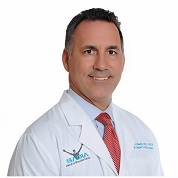Leading the charge is Dr. Alejandro Badia, Founder and CMO of OrthoNOW, and offering us tips to help patients be savvy health care consumers
MIAMI (PRWEB) December 06, 2018
Accelerated by consumer demand for convenient, accessible and affordable care, walk-in general care clinics have become our “new normal”. Now, a specialty walk-in health care center? “Absolutely,” says Dr. Alejandro Badia MD FACS, Founder and CMO of OrthoNOW®, a single-specialty, on-demand care center opened its first location in Doral, Florida in 2010. As a trail blazer in the health-reform upheaval OrthoNOW® has four centers across Miami Dade County and poised for expansion in major markets across the US and globally.
“Dramatic changes in government and third-party reimbursement policies and the emergence of the patient as a true consumer who is looking for quality service at the lowest possible price have forced the health industry to transform its business models,” says Dr. Badia, a specialist in treating injuries of the upper limbs – hand, wrist, elbow and shoulder.
In some instances, innovation in care delivery has meant borrowing successful ideas from the commercial and retail sectors.
OrthoNOW® combines health care expertise, best in class business principles and the latest technology to offer on-demand access to comprehensive, specialized orthopedic care. Services include everything from diagnosis to treatment to patient rehabilitation.
“Our handy mobile app rivals that of any other health care provider and commercial vendor,” Dr. Badia says. “Patients can use the app to check what insurance plans our centers accept and let the orthopedic team know they are on their way to the center. The app will even call our patients an Uber driver to transport them to our facility.”
In terms of safety and efficacy, the freestanding, single-specialty concept seems to work especially well in orthopedic care. For example, in an article published in a March 2018 edition of the journal Neurosurgery, researchers state that a “plethora of real-world clinical data creates a formidable argument for serious investments in ambulatory surgery centers (ASCs) for multiple spine procedures.” An earlier study – this one in the Journal of Bone & Joint Surgery – indicates that “hand and upper-extremity surgical procedures can be completed safely in the outpatient setting at a freestanding ambulatory surgery center.”
Underscoring the effectiveness of these single-specialty walk-in centers are the cost reductions achieved on behalf of patients. Dr. Badia concurs with the authors of the ASC spinal-surgery report that “ASCs are known to achieve efficiencies of cost through specialization of care, smaller size, and ability to rapidly engage in perioperative process improvement.”
In fact, cost and quality were key drivers of Dr. Badia’s determination to join with a business and financial expert in developing the OrthoNOW® model.
“Too often, patients with orthopedic injuries or other problems would be sent by their physician – or go on their own — to a hospital emergency room for expensive care and unnecessary diagnostic tests before being ultimately referred to me for help,” he says.
Dr. Badia is a proponent of what some experts refer to as “de-hospitalization” – bypassing large, pricey health care institutions with heavy amounts of fixed costs in favor of non-traditional care access points, such as quality, freestanding outpatient clinics and specialized surgical centers.
In an article he authored for Miami Medicine, Dr. Badia writes: “in a seven-year study, KNG Health Consulting determined that “moving a variety of surgical procedures into ambulatory surgical centers [and] away from hospital centers greatly decreased the cost of treatment” without overutilization or increased patient self-referrals.”
In 2016, health care spending in the United States totaled $3.3 trillion or $10,348 per person, according to the Centers for Medicare & Medicaid Services. That’s 17.9 percent of the Gross Domestic Product, and cost numbers are only expected to rise as the population ages and the incidence of lifestyle-related diseases like obesity and diabetes continues to increase.
“To address these health trends, we need more modern business models that can achieve efficiencies of administrative and health-delivery costs,” Dr. Badia says.
Dr. Badia’s advice to the patient-consumer:
- Do your homework. Select a health provider with as much care as you would when buying a new car.
- Use health benefits effectively. Know what they provide, what they don’t.
- Find ways to save money. Check out urgent-care and specialty centers in your neighborhood and seek help there for non-life-threatening conditions rather than in a much more expensive hospital emergency department.
- Take an active role in your own health care.
- Practice prevention; maintain a healthy lifestyle.
An internationally renowned hand and upper-limb surgeon, Alejandro Badia, MD, FACS, is founder and chief medical officer of the Florida-based Badia Hand to Shoulder Center and of OrthoNOW®, a walk-in orthopedic care center. http://www.drbadia.com, http://www.orthonowcare.com

